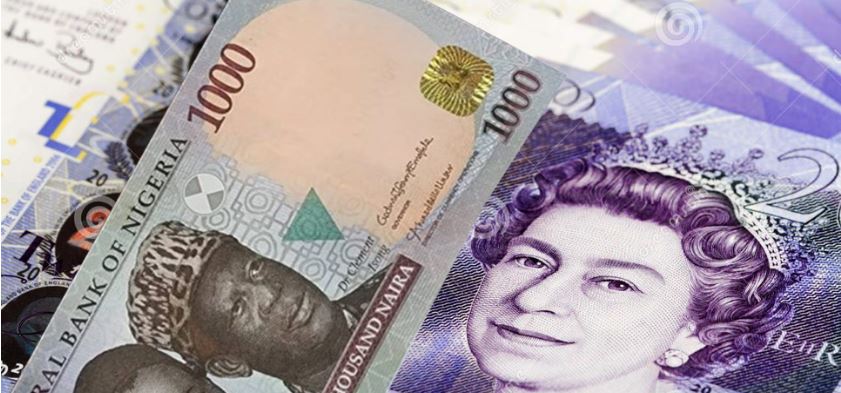The Nigerian naira languished against the British pound near the N2,000 support line, as the fortunes of the British currency gained momentum in global FX markets.
Despite better market circumstances in the nation’s official market, the British pound sterling sold for N1,861 against the naira on the black market.
Data from the FMDQ Securities Exchange shows that the CBN sold $575 million in May, marking its greatest dollar sales in a single month since 2024.
The Naira’s bearish run persisted as it continued to weaken against other major currencies in both the official and black markets. This was partially caused by increased speculation, hoarding, and the delayed payment of foreign exchange to BDC operators.
Sterling hit a two-year high against the US dollar in response to predictions by financial markets that the Bank of England will be forced to keep interest rates at their current level for a little bit longer due to worries about backing the government ahead of the July 4 election day.
Last week, Prime Minister Rishi Sunak unexpectedly called a snap election for July 4, four months earlier than anticipated, shocking much of the nation as well as many of his colleagues.
The ruling suggested that voters’ behaviour was unlikely to be significantly affected by an additional four months of steady but unspectacular growth.
However, given that Labour is currently leading the Conservatives by over 20 points in the polls, any positive sentiment that this creates would almost certainly help the incoming administration rather than the one in power now.
Later this month, the Bank of England will host potentially crucial policy meetings. Forex traders will be watching for cues about when the British central bank will start reducing interest rates and when it will raise them once more.
Naira against the U.S dollar still trades around the N1500 support line
The naira is still within the N1,500 price mark at the unofficial market despite the US dollar index falling to its lowest level in two and a half months, as data revealed an unexpected drop in construction investment and a second consecutive month of slowing manufacturing activity.
Strong demand led to a quote for the dollar on the Nigerian black market between the N1,480 and N1,505 bandwidth against the greenback.
The dollar index, which compares the greenback’s strength to the euro, pound, Swiss franc, yen, and two other major currencies, remained stable at 104.08 index points. It had briefly fallen below 104, marking the first time it had done so since April 9.
Fed funds futures raised the likelihood of a rate decrease in September to approximately 59.1% in response to the data, according to LSEG’s rate probability tool.
This contrasts with odds of almost 55% on Friday, when statistics indicated that consumer price pressures had stabilized, contributing to the dollar’s first monthly decline of the year in May.
The odds were just under fifty per cent earlier in the week.
The Fed is fully expected to raise rates by a quarter point at its meeting in November, and by the end of the year, a total tightening of 41 basis points is predicted. On June 12, the conclusion of the Fed’s upcoming policy meeting, consumer price data is also due.
Analysts and traders see little chance of a policy shift at that meeting, although policymakers will revise their forecasts for the economy and interest rates.


















































